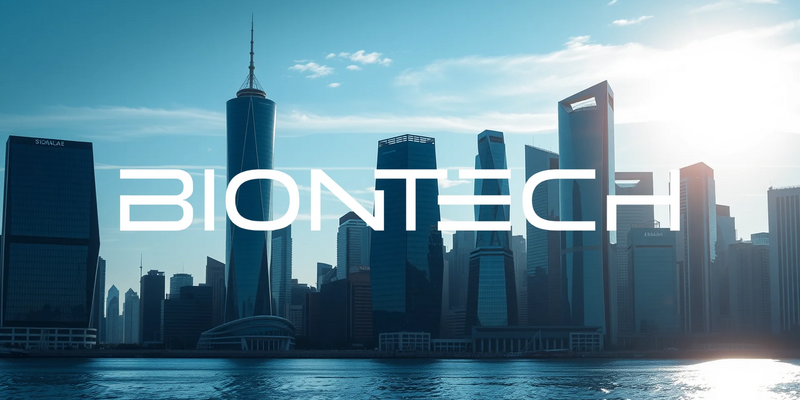BioNTech’s Profit Plunge: A Strategic Pivot in Progress
24.11.2025 - 21:52:04The third quarter of 2025 delivered a stark financial reversal for the Mainz-based biotechnology firm BioNTech. Despite a massive collaboration with Bristol Myers Squibb, the company reported a significant loss, marking a dramatic departure from its previous profitability. This development raises critical questions about the future trajectory of the former pandemic champion. Is this the end of its golden era, or is it a calculated step in a strategic transformation?
On the surface, the top-line figures appear robust. Quarterly revenue reached €1.52 billion, a substantial increase from the €1.24 billion reported in the same period a year earlier. This surge was primarily fueled by a colossal $700 million upfront payment from the Bristol Myers Squibb partnership. When combined with additional partner payments, the deal injected a total of $1.5 billion into BioNTech's coffers.
However, the bottom line tells a different story. The company posted a net loss of €29 million for the quarter, a severe downturn from the €198 million profit recorded a year prior. This dramatic swing is largely self-inflicted, driven by a strategic decision to aggressively ramp up investment in research and development. R&D spending alone hit €565 million in the third quarter, with a continuing upward trend.
The Fading Legacy of COVID-19
The very business that once propelled BioNTech to immense financial success is now becoming a liability. Its COVID-19 vaccine operation is experiencing severe weakness, with demand plummeting and public willingness to get vaccinated declining. Although the company successfully launched an updated vaccine for the 2025/2026 season, the fundamental market dynamics have shifted irrevocably.
Consequently, BioNTech is now contending with inventory that will likely require write-downs. While management expresses hope for stable pricing and market share, it acknowledges the significant challenges ahead. The former blockbuster product has become a legacy offering, compelling the company to execute a radical strategic shift.
Pfizer's Strategic Retreat Signals a New Chapter
Amid BioNTech's internal restructuring, a key ally is stepping back. Pfizer slashed its stake in the German biotech firm by a notable 54.7%. This divestment leaves Pfizer holding approximately 1.66 million shares, valued at around $163.5 million.
Should investors sell immediately? Or is it worth buying BioNTech?
This move, occurring five years after the launch of their historic vaccine partnership, represents a clear inflection point. Both companies have stated their collaborative efforts will continue, yet the signal is unambiguous: the period defined by pandemic-related windfalls has concluded.
Oncology Ambitions Face Regulatory Hurdles
BioNTech's path forward is firmly anchored in oncology. The company is channeling its resources into mRNA-based immunotherapies, bispecific antibodies, and antibody-drug conjugates. Early clinical data in small cell lung cancer has demonstrated promising efficacy, with the anti-tumor activity of its candidate, Pumitamig (BNT327), generating optimism.
However, the company recently encountered a setback. Regulatory submissions for another candidate, BNT323, have been delayed until 2026 due to ongoing discussions with the U.S. Food and Drug Administration (FDA). This postponement represents a considerable delay for the company's commercial ambitions in the competitive oncology space.
Financial Discipline Fuels the Transition
In response to these challenges, BioNTech's management is implementing rigorous cost control. The company has set caps on its R&D expenditures for the year, targeting between €2.0 and €2.2 billion. Similarly, selling, general, and administrative expenses are projected to be between €550 million and €650 million. Capital expenditures are also being contained, expected to fall between €200 million and €250 million.
Bolstered by a substantial war chest of €16.7 billion—which includes the payment from Bristol Myers Squibb—BioNTech possesses significant financial firepower to fund its transformation. The critical question remains whether these resources are sufficient to navigate this loss-making phase and successfully establish new revenue streams in time. The company's decision to raise its full-year 2025 revenue guidance to a range of €2.6 billion to €2.8 billion suggests short-term confidence, but a return to profitability appears distant for the foreseeable future.
Ad
BioNTech Stock: Buy or Sell?! New BioNTech Analysis from November 24 delivers the answer:
The latest BioNTech figures speak for themselves: Urgent action needed for BioNTech investors. Is it worth buying or should you sell? Find out what to do now in the current free analysis from November 24.
BioNTech: Buy or sell? Read more here...


